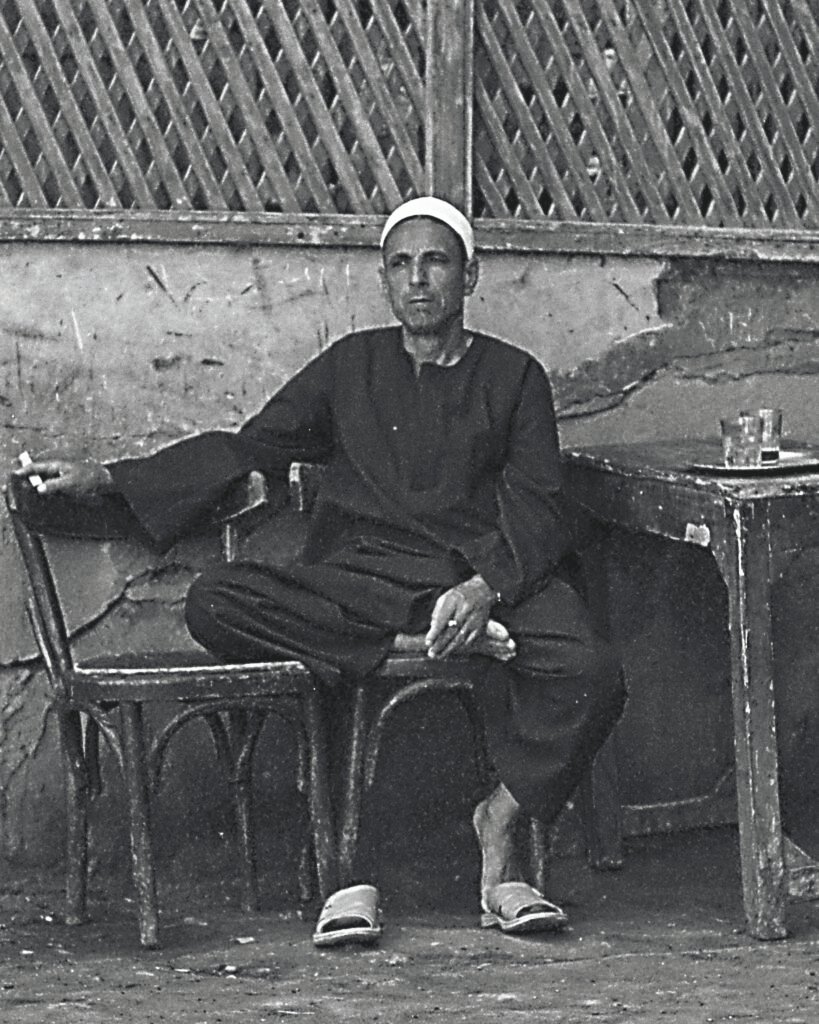
He sits on a wooden chair outside a peeling storefront in Downtown Cairo, where the horns never stop and the dust rises with the call to prayer. A short table nest to him, scratched and wobbly, holds a glass of thick black ahwa—sweet and tar-like, still steaming in the desert morning light.
His name is Amin, though the world doesn’t ask. He is sixty-something, with a face that looks carved from sandstone, lined with sun, smoke, and the silence of someone who’s seen too much, but answers only when necessary. A lit cigarette hangs lazily from the corner of his mouth. He takes a drag. Exhales slowly, as if measuring time in smoke.
His galabeya is old and dark, frayed in some places, and his feet, dusty in worn sandals, tap gently to a rhythm that comes from nowhere— maybe memory, maybe the street. Across from him, two boys argue over a cracked phone. A vendor shouts prices in Arabic too fast to catch. The world spins loud around him, but Amin sits still, anchored.
He watches people like other men read books—slowly, with judgment and care. Tourists stumble past in cargo shorts and confusion. Young women with hijabs and headphones stride by, phones glowing like tiny suns. He sips his coffee. Doesn’t flinch.
There’s a radio inside the café playing old Abdel Halim Hafez songs. He mouths the words, barely.
He once played that cassette for a girl on the Corniche in 1983. She’s gone now. But the song’s still here.
Another drag. Another sip. The day is already hot. The city already loud. But Amin sits—smoking, sipping, surviving—a man of Cairo, still as the Nile beneath the chaos.